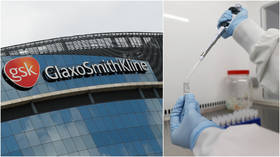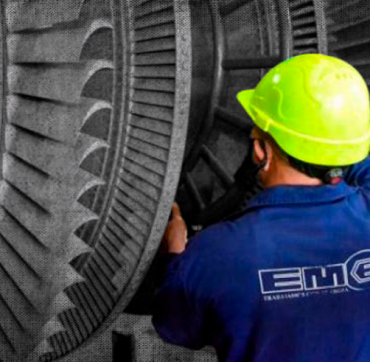The more you know? Over a third of Americans apprehensive about Covid-19 vaccine, citing rushed development & trust issues
especiales

Operation Warp Speed, the Trump administration’s unprecedented drive to create and roll out a vaccine for the coronavirus pandemic by the end of the year, may be doing more harm than good, at least where Americans’ trust is concerned. Between the shockingly abbreviated timetable and the lack of long-term safety testing, almost one in four Americans (24 percent) said they were not interested in the shot, according to a Reuters poll published Thursday. An additional 11 percent were unsure about it.
Compounding the distrust is the polarizing figure of President Donald Trump himself, who proudly announced the shortened timetable for vaccine development last week. Thirty-six percent of those polled by Reuters said they would be less likely to take a potential Covid-19 vaccine if it came recommended by Trump, while just 14 percent thought the president’s seal of approval was a positive.
Trump’s narrative flip-flops haven’t helped his credibility on the vaccine front. From his early reassurances that the virus would vanish in weeks, to his public conflicts with his own health advisers over locking down and reopening the country, it’s not hard to see why Americans are hesitant to fall in line behind him on this. But the problem isn’t necessarily political. Nearly half of those uninterested in taking the vaccine said the speed of its development worried them, while over 40 percent said the vaccine would be riskier than actually contracting Covid-19 itself.
However, even those who said they were “not very interested” in the vaccine allowed they’d be willing to change their mind if the shot was approved by the Food and Drug Administration. The full approval process for vaccines usually takes over a decade, and even the most optimistic experts – including Dr. Anthony Fauci, who has become the public face of the US’ Covid-19 policy – believe a shot won’t be ready for another year to 18 months. Rushing a vaccine to market in the middle of a pandemic means sacrificing comprehensive safety checks for efficiency – a tradeoff that can be disastrous, as in the case of the 2009 swine flu shot Pandemrix, which caused permanent brain damage in over 1,000 British patients.
The parallels between Covid-19 and that epidemic are ominous – wildly inflated death predictions had spooked the UK government into approving Pandemrix without sufficient safety data – and it surely won’t help Americans’ trust in this vaccine that Trump’s “vaccine czar” Moncef Slaoui ran GlaxoSmithKline’s vaccine division during the swine flu debacle. Nor has it been especially heartening to discover Slaoui’s extensive investments in not just Glaxo but many other drug companies working on potential vaccines.
Slaoui earned $3 million on Monday alone from Moderna, which is still considered the leading candidate in the vaccine race, even though the drug company has never brought a vaccine to market. After hyping up what were essentially meaningless preliminary results, Moderna’s stock shot up 25 percent, bringing his holdings to over $10 million. He pledged to donate those earnings to “cancer research” after demands for him to divest reached a fever pitch. A vaccine produced at Oxford University hasn’t fared much better, with all six rhesus monkeys who received the shot becoming infected anyway – despite a preliminary report that tried to spin the failure as representing “some” success.
Threats of mandatory vaccination have unsurprisingly not helped to soothe Americans’ worries over a potentially unsafe vaccine. Fauci and other health officials have repeatedly warned the public that there will be no return to “normal” without a vaccine, even as lockdown restrictions are slowly lifted – a statement some have interpreted as a threat that the unvaccinated will be barred from crowded public places or travel. Harvard Law Professor Alan Dershowitz went further, declaring the government has “police power” to mandate Americans take a vaccine and claiming such power is “not debatable” constitutionally. And other experts downplayed the very real concerns voiced by poll respondents in favor of blaming the “very aggressive anti-vaccine movement.”
All this is bad news for the health experts Reuters cites, who say 70 percent of Americans would have to be immune in order to achieve “herd immunity” and stop the virus from spreading through the US, where upwards of 90,000 people have died since the pandemic began.


 Trump’s WARP SPEED vaccine czar oversaw an infamously BOTCHED vaccination. Wonder why a THIRD of Americans want to dodge this one?
Trump’s WARP SPEED vaccine czar oversaw an infamously BOTCHED vaccination. Wonder why a THIRD of Americans want to dodge this one? 











Add new comment